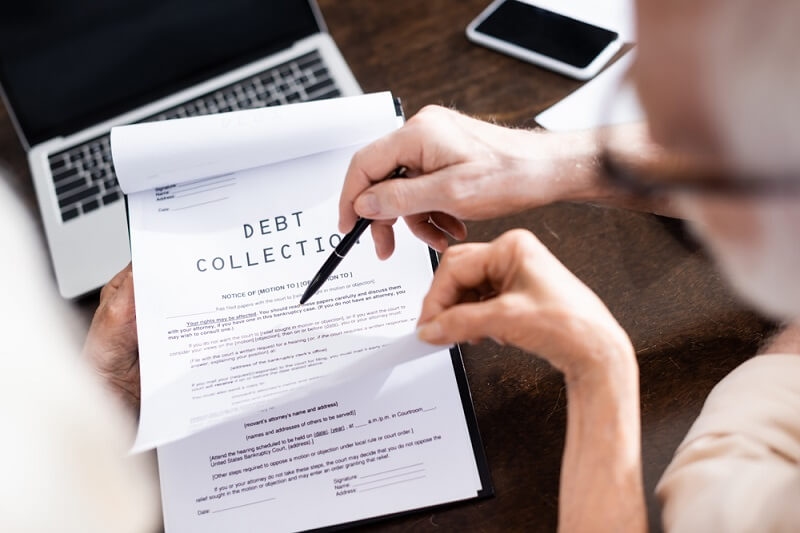
Dealing with debt collectors can feel like being trapped in a loop of calls and letters. But here’s the truth: you have rights, and debt collectors have limits. Knowing debt collectors rights gives you control. It helps you stop pressure tactics, respond smartly, and protect your credit.
This guide explains how to deal with debt collectors, what debt collector harassment laws protect you, your rights against debt collection, when contact is allowed, and how to stop debt collector calls without hurting your case.
By employing the services of debt collectors, creditors seek to get the money that they lost. However, the Fair Debt Collection Practices Act (FDCPA) imposes a set of rules that limit the extent and practices of the collectors. The rules, therefore, become the laws that both debtors and creditors must obey.
As per FDCPA, the collectors are entitled to talk to you regarding the debts that are valid. There are various ways the communication can take place such as through letters, phone calls, or emails. On the contrary, the collectors cannot do any of the following: bully, deceive, or threaten you. The means to accomplish their aim are not the same as their aim that is not through intimidation.
Collectors are allowed to:
They are not allowed to:
Understanding debt collectors rights helps you identify when the line is crossed. If it is, you can hold them accountable.
Also check: Debt Snowball vs Avalanche Which Payoff Method Fits You Best
The law protects consumers as much as it protects collectors. Knowing your rights against debt collection is your first defense.
Keep records of every call, letter, or text. Written proof strengthens your case if you need to report harassment later.
Collectors must follow time and place rules. They can reach you between 8 a.m. and 9 p.m. They must stop if you say certain times are off-limits.
If they call your job after you said not to, note it. Repeated contact outside approved hours can lead to penalties.
When can debt collectors contact you? Only within these hours and conditions. Anything outside that is not legal.
You can file a complaint with the Consumer Financial Protection Bureau or your state attorney general if the rules are ignored.
Debt collector harassment laws are designed to stop abusive behavior. Harassment can be emotional, verbal, or psychological. You don’t have to tolerate it.
If you experience any of this, report it immediately. File a complaint with the CFPB, the Federal Trade Commission (FTC), or your state’s consumer protection office. You can also consult a consumer rights attorney to file a lawsuit under the FDCPA.
Harassment is not “persistence.” It’s a violation. The law is on your side.

The best approach is calm and planned. Here is how to deal with debt collectors step by step.
Do not argue or panic. Listen and take notes.
Request a validation letter before paying.
Do not share account numbers or personal details over the phone.
Written communication creates a record. Use certified mail for letters.
If the debt looks wrong, dispute it within 30 days.
If you owe the debt, ask for a reduced settlement in writing before paying.
Nonprofit credit counseling services can guide you through repayment.
Your goal is to stay informed and in control.
Don’t Miss: Practical Ways to Stop Living Paycheck to Paycheck
You can stop debt collector calls legally without creating more trouble for yourself. The FDCPA allows you to request that all communication stops.
Here’s how to do it:
If calls continue, record details of each attempt and file a harassment complaint. Keep voicemails, emails, and timestamps as evidence.
Remember, stopping calls doesn’t erase the debt. It only prevents further contact. You still need to address the debt through repayment, negotiation, or legal advice.
Collectors sometimes take legal action. Never ignore court papers. Respond before the deadline listed. Ignoring them can result in a default judgment, which allows wage garnishment or bank freezes.
Check all paperwork and verify the debt. Seek help from legal aid if needed. Many collectors cannot prove ownership of old debts, which helps your defense.
Explore More: Best Money Habits in Your 20s for a Safe and Secure Future
Debt collectors rights are limited by law. You have legal power to protect yourself. Use it.
Know your rights against debt collection. Track when can debt collectors contact you. Enforce debt collector harassment laws when boundaries are crossed. Apply practical steps for how to deal with debt collectors and stop debt collector calls when needed.
Knowledge keeps you ahead. The law supports you if you act with proof and precision.
This content was created by AI